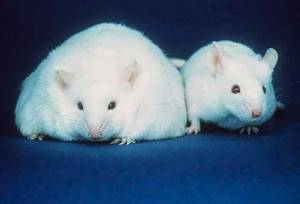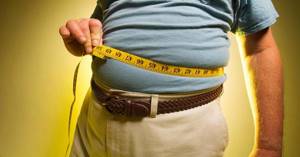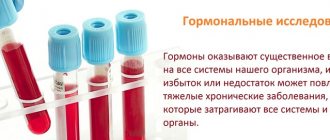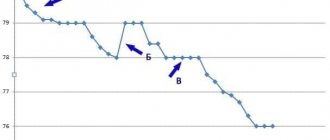What are hormones
Oh, this magic word “HORMONES”, causing shock and awe in people who are far from medicine and questions of physiology. There are so many interesting tales about these biologically active substances, starting with “hormones build muscle,” continuing with the fact that they “burn fat,” and ending with the opposite effect, that is, “fat accumulation.” In fact, these are a kind of control programs of our body , if we draw an analogy close to the modern geek.
Translated from ancient Greek, the word “hormone” means “to excite” or “to stimulate.” It is these actions that underlie the nature of hormones. They are produced in specialized cells of the endocrine glands, after which they enter the blood, bind to receptors of target cells and have a regulatory effect on the metabolism and physiological functions of the body. To put it simply, these are a kind of signaling substances.
The same testosterone does not grow muscles on its own, but only gives the body a signal to restore and grow muscle tissue (one of the many functions of the substance mentioned), but this happens under strictly defined conditions. The muscular system must experience stress, the reaction to which in the male body will be the release of growth hormone and testosterone, and they, in turn, having reached the stressed cells through the bloodstream, will give a signal that it is necessary to restore and build up these particular areas of the body.
In the female body, the reaction to physical stress will be the release of only growth hormone, if we talk about the anabolic component of the process. Yes, yes, the female hormonal system and the male one are very different in a number of ways, which we’ll talk about a little later.
Above is just one small example of how hormones work, which explains a lot. For example, why in the absence of physical activity muscles do not grow, even when using artificial hormones introduced from the outside. That is, “magic injections and pills” still do not exist. The muscles have not experienced stress, therefore, the “control programs” will not pay attention to them and will not give commands for their growth.
Functions and effects of hormones
A lot of them. Almost all processes in our body occur with the participation of hormones. Moreover, they are in a delicate balance, which is easy to upset and difficult to restore. This balance is disrupted for various reasons, starting with experiments with sports pharmacology by “dominant schoolchildren,” continuing with diseases, congenital genetic abnormalities, and ending with banal gluttony, unbalanced nutrition, and addiction to alcohol and tobacco.
Before moving on to the immediate topic of the article, let's understand the effects of hormones on the human body. In particular they:
- influence mood (dopamine, serotonin);
- stimulate or stop tissue growth (testosterone, growth hormone, somatostatin);
- stimulate or suppress the immune system;
- regulate metabolism (chemical reactions in the body);
- cause feelings of hunger and satiety;
- are responsible for sexual desire.
And this is only part of the functions. Rapid preparation of the body for active actions (adrenaline, norepinephrine), preparation for a new life cycle (childbirth, puberty, etc.), breakdown and birth of cells - hormones are also responsible for all this.
Wherever you point, these regulators and control programs of our body, invisible to the naked eye, are everywhere. Accordingly, gaining excess weight can indeed be associated with hormonal imbalance, but this is not always the reason. More often it is only a consequence of a person’s rash actions.
Examination of women
If external signs of hormonal obesity and typical symptoms are detected, the endocrinologist recommends the following diagnostic methods:
- blood test for hormones: pituitary gland (follitropin, somatostatin, lutropin, prolactin, corticotropin, thyrotropin), adrenal glands (cortisol, dehydroepiandrosterone), thyroid gland (thyroxine), reproductive (testosterone, estradiol, progesterone), adipose tissue (leptin, adiponectin);
- blood sugar and glucose tolerance test, according to indications - insulin and C-peptide;
- lipid profile (cholesterol, lipoprotein ratio, triglycerides);
- Ultrasound of the adrenal glands, thyroid gland, ovaries, pancreas;
- MRI or CT scan of the pituitary-hypothalamic zone of the brain.
Ultrasound of the adrenal glands
What hormones cause excess weight gain?

These are mainly steroid (sex) and thyroid hormones: testosterone, prolactin, progesterone, estradiol, thyroxine (T4) and triiodothyronine (T3). Peptide hormones are also directly related to excess weight. For example, a lack of growth hormone or resistance (immunity) of muscle tissue to insulin.
testosterone levels are too low in men, adipose tissue can actively accumulate, including the “female” type. That is, it is deposited not only on the stomach and lower back (the so-called “lifebuoy”), but also on the hips and buttocks. Simultaneously with the accumulation of large reserves of fat in the male body, the level of estrogen, female sex hormones, often increases. In particular, the “beer” belly is a real factory for the production of estradiol. But an increased level of this hormone in the male body means not only active accumulation of fat, but also other troubles, including depression, and bad changes in behavior (for example, moodiness, tearfulness and sudden mood swings).
For women, things are even more complicated with hormones. For example, they are much more likely than men to experience decreased thyroid function (hypothyroidism), which slows down metabolic processes in the body and causes both relatively rapid weight gain and lethargy, drowsiness, depression, and irritability. In such a state, a person lives by the principle: “I am dragged and I am dragged.”
Leptin is a relatively recently discovered hormone (in 1994) of adipose tissue, which is responsible for regulating appetite. Due to problems with it, for example, when the receptors are not responsive to this hormone (which happens most often), a person constantly overeats because he simply does not feel full. So far, this hormone has been studied rather poorly, but some mechanisms of action on it are already known - we’ll talk about them below.
If we talk about thyroid hormones , then in most cases problems with them are congenital, which cannot be said about complications with steroid hormones. So, before you rush to the hospital and get tested, blaming a lack of testosterone or estrogen imbalance for your troubles with excess weight, let's figure out what disrupts the functioning of the hormonal system as a whole.
Tests, of course, won't hurt, but knowing that you have difficulties with steroid hormones will not solve the problem on their own. And artificial hormones are not a panacea here either, because the hormonal balance is easy to disrupt with medications and then difficult to restore.
And the conclusion of this part of the article is simple: it is not hormones that make a person fat, but their imbalance.
Does obesity occur after hormonal pills?
Medications that stimulate weight gain include:
- glucocorticoids (analogues of the natural hormone cortisol) – Hydrocortisone, Prednisolone, Dexamethasone;
- anabolic steroids – Methandrostenolone;
- contraceptive pills with an estrogen dose higher than 35 mcg (currently practically not used).
A peculiarity of the use of drugs is that increased appetite and a tendency to overeat persist for some time after stopping use. For patients prone to obesity, gynecologists prescribe low-dose drugs - Logest, Mercilon, Janine, Lindinet. If carbohydrate metabolism is impaired, progesterone tablets are indicated - Exluton, Charozetta.
If long-term glucocorticoid therapy is prescribed, then the only option to prevent obesity is to scrupulously count calories in combination with daily physical activity. If this is not enough, then in addition to them, appetite suppressants are recommended.
The real reasons for excess weight gain and hormonal imbalances

Do you know this proverb: “All diseases come from an unbalanced diet”? Yes, before blaming hormones for everything, evaluate your daily diet and eating habits. Do you like sweets and flour, especially at night? Do you eat mostly simple carbohydrates instead of buckwheat, bulgur, barley? Dumplings well seasoned with mayonnaise or sausages with potatoes are a joy, but durum wheat pasta with a piece of meat doesn’t excite you at all? Constant snacking with coffee and cookies during the workday? If you answered yes to one or more questions, then this is one of the main reasons for excess weight, which brings with it a bunch of other problems.
I won’t focus on a balanced diet, since I’ve already written about it, but if you’re too lazy to read, you can look at:
Since we're talking about hormones, let's look at what happens to them due to bad eating habits and consumption of various kinds of stimulants.
If your diet is high in sugar and simple carbohydrates (sweets, rolls, cookies and other foods with a high glycemic index), a large amount of insulin is produced to quickly remove excess glucose from the blood (otherwise it thickens). We ate 6-7 chocolates, 100 g of glucose very quickly entered the blood, but only 5-10 g will go to the body’s energy needs, the rest goes straight to fat reserves.
And okay, if the problem was only in increasing the size of the waist, hips and buttocks. The tissues of the body gradually develop resistance to insulin, since there is always too much of it in the blood, the pancreas has to produce more and more hormone in order to still break into the cells and deliver useful substances to them, but eventually there comes a moment when the said organ cannot stand it . Hello, type 2 diabetes.
Oh, yes - insulin is an antagonist of growth hormone , that is, it blocks its work, which only enhances the effect of gaining excess weight (somatotropin accelerates fat burning), plus it worsens the body’s regenerative abilities. If there is a constantly high level of insulin in the blood, then there will be minimal benefit from growth hormone. Add to this a systematic lack of sleep and you get another blow to somatotropin, 70% of which is produced during sleep.
There is more and more adipose tissue, but it is hormonally active and promotes increased production of estradiol, which reduces testosterone production in men and disrupts the hormonal balance in women. Plus it promotes the accumulation of water and even more excess weight gain.
In addition, the more fat in the body, the more leptin , due to which immunity to this hormone develops, which leads to a huge number of problems, including difficulties with losing excess weight even on strict diets and with intense physical activity. In addition, the satiety hormone also performs other functions related to immunity, brain function, reproductive system, etc.
It turns out to be a vicious circle - bad eating habits (including systematic overeating) provoke active weight gain, which in turn leads to hormonal imbalance and even greater fat accumulation, plus a bunch of other problems. Do you think trying to correct the hormonal system with some pills and injections will help in this case? No, of course, because this is a test to eliminate the consequences and not the cause. But we have considered only one of the typical reasons. Let's take a look at a couple more.
Alcohol

We sip a glass in good company, drink beer in the evening while watching a TV series, and then we are surprised at the weight gain. Again, this is just one of the negative effects directly related to the endocrine system and hormones. Do not forget about the high glycemic index of the mentioned beer, which provokes you to eat a huge amount of any snack.
Returning to the topic - alcohol has an extremely negative effect on the pituitary gland (thyroid hormones), on the function of the adrenal glands (steroid hormones), and on the pancreas (insulin). By the way, for women with their more complex and delicate hormonal balance, alcohol has a particularly detrimental effect, and rapid weight gain is just the beginning that occurs due to disruption of the normal level of estradiol, increased production of prolactin, not to mention pandemonium with thyroid hormones T3 and T4 glands, plus decreased sensitivity to leptin. It is also worth noting a decrease in libido, increased hairiness, deepening of the voice, and a number of problems with the mammary glands (progesterone imbalance). That is, a woman who actively drinks alcohol accumulates male sex hormones in her blood.
In men, on the contrary, alcohol tilts the balance towards female sex hormones, which leads (in addition to excess weight gain) to a decrease in sexual desire and a sharp decrease in testosterone production (the muscular system atrophies, potency is impaired, problems with ejaculation are observed).
In addition, in both cases, alcohol provokes the production of stress hormones (including cortisol), which has a detrimental effect on the body as a whole.
Tobacco

If we’re going to hit bad habits with an iron fist, then we shouldn’t forget about tobacco. In men, it primarily causes a serious decrease in the level of testosterone in the blood plasma with all the ensuing consequences in the form of the above-mentioned sexual disorders, muscle atrophy and negative changes in character.
In women, tobacco has an extremely negative effect on the function of the pituitary gland (thyroid hormones). Why is there tobacco, even cigarette smoke from a nearby smoker affects women’s health. This is a note to those ladies whose men are actively “shaming” them in their presence. Disruptions in the menstrual cycle are often also a consequence of tobacco exposure.
But in addition to the mentioned nuances, we have problems with blood vessels, low-density cholesterol, lungs, and insulin (tissue insulin resistance develops).
Treatment of hormonal obesity
Secondary obesity due to diseases of the endocrine system is treated taking into account hormonal imbalances. The main methods are a low-calorie diet, increased physical activity, medications for weight loss and restoration of normal hormone levels.
Diet
In order for the process of fat breakdown to prevail over its accumulation, a calorie deficit is necessary. To do this, 500-750 kcal are subtracted from the required calorie intake (physiological need), depending on the degree of obesity. It is necessary that the minimum amount does not fall below 1200 kcal for women and 1500 kcal for men.
It is recommended to eat frequent small meals, exclude sugar, flour products, limit animal fats (meat and high-fat dairy products). Alcohol, store-bought sauces, juices, desserts, and semi-finished products are prohibited.











